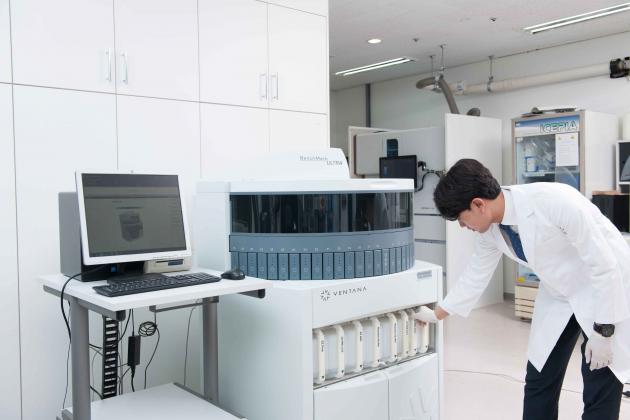Roche Diagnostic said it has launched an in vitro diagnostic immunohistochemistry (IHC) antibody, VENTANA ROS1 (SP384) Assay, for diagnosing patients with ROS1-positive non-small cell lung cancer (NSCLC).

VENTANA ROS1 stains the proto-oncogene tyrosine-protein kinase 1 (ROS1) protein present in tissue sections and examines the protein expression of the ROS1 gene. The device is the first diagnostic kit that uses IHC as an in vitro diagnostic reagent approved by the Ministry of Food and Drug Safety last month.
ROS1 positive is a very rare type of carcinoma found mainly in young nonsmokers and occurs in 1 to 2 percent of all NSCLC patients worldwide. Until now, it was difficult to perform the fluorescence in situ hybridization (FISH) test or polymerase chain reaction tests because of the efficiency of the test and the characteristics of very small lung cancer tissues.
However, the in vitro diagnostic test permits a simple and efficient test for the presence or absence of ROS1 protein expression before the confirmation test.
The device can be tested at all hospitals equipped with benchmark series autoimmune staining equipment, which is widely used in hospital pathology laboratories.
As of now, the ROS1 test is strongly recommended by international guidelines for lung cancer screening, including the College of American Pathologists (CAP), the International Association for the Study of Lung Cancer (IASLC), and the National Comprehensive Cancer Network (NCCN).
“As the VENTANA ROS1 test is approved for in vitro diagnostic use, it will help more patients to take the test,” said Cho Sung-ho, Roche Diagnostic’s head of tissue diagnostics division. “The company also expects that the device will contribute to improving the efficiency of the test for medical staff.”

